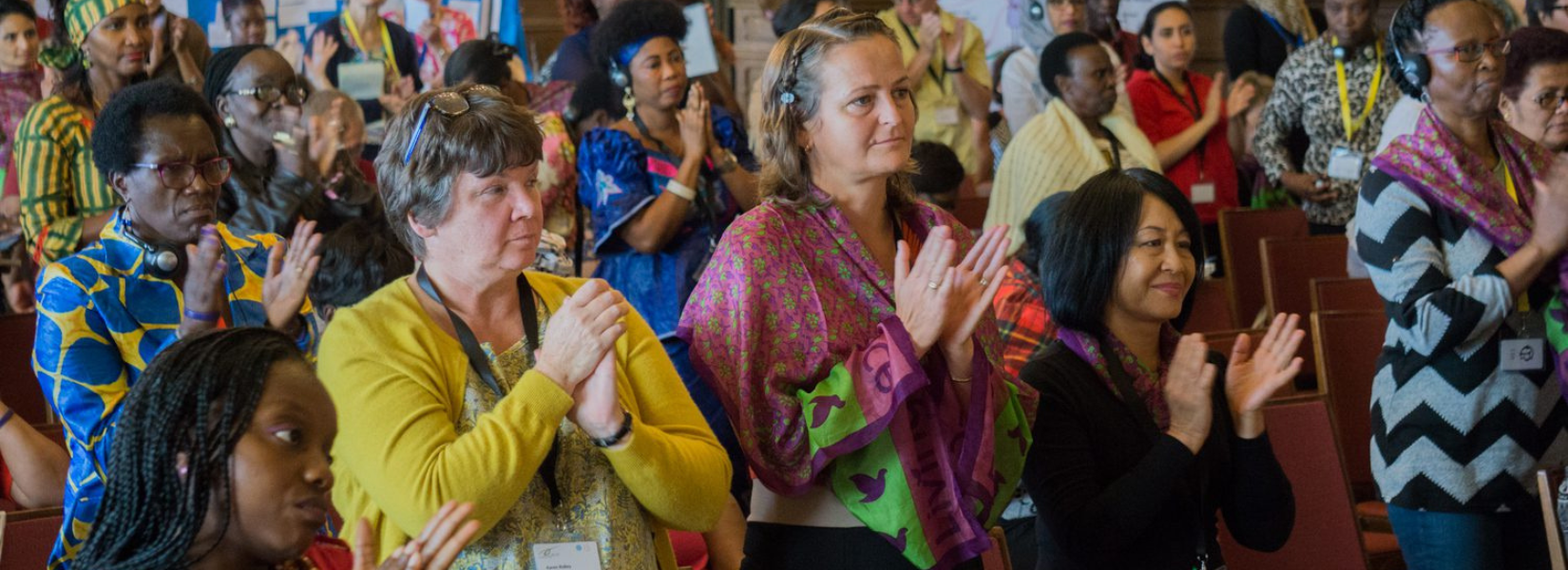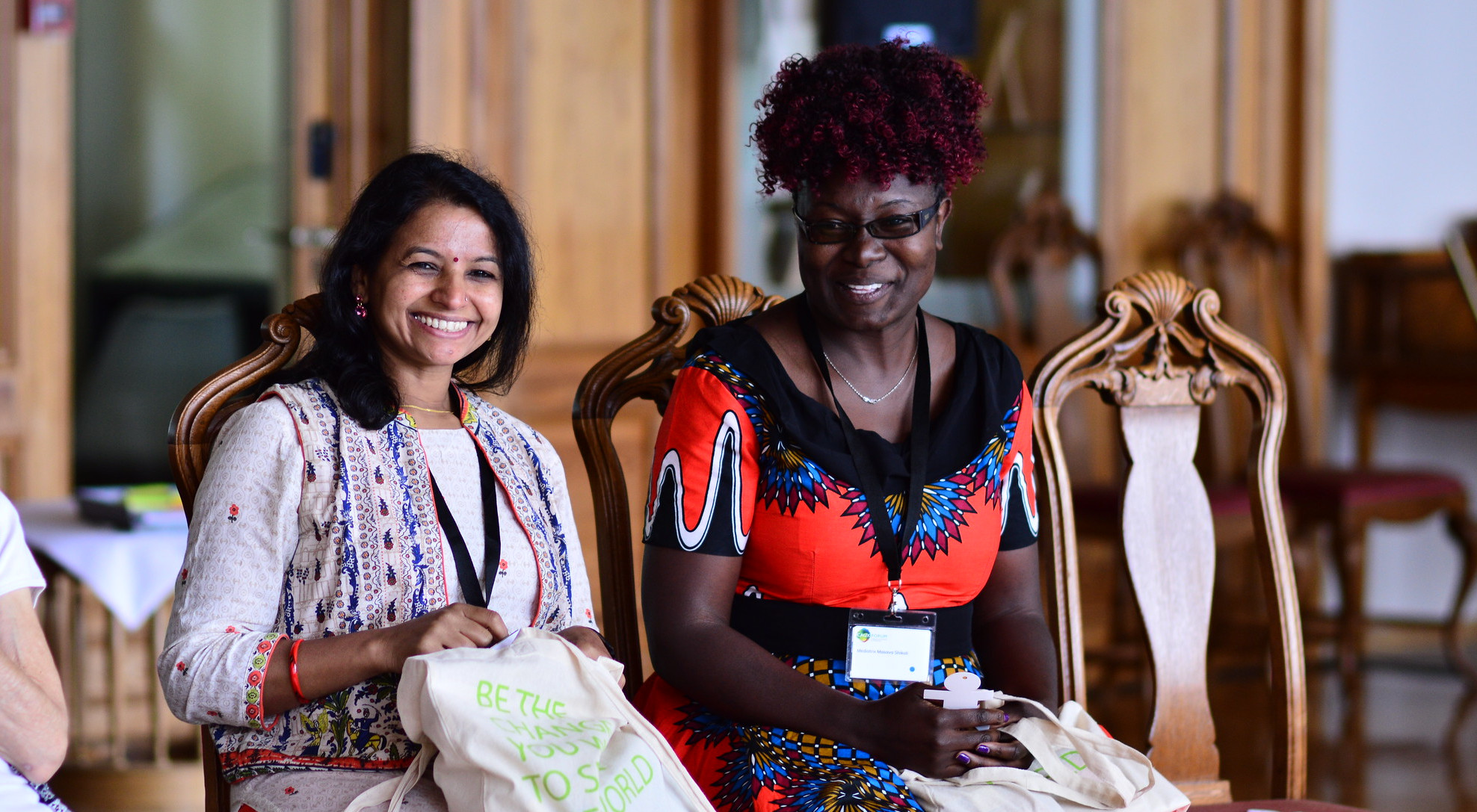Heather Cetrangolo
Heather Cetrangolo is an educator and coach in organisational renewal, with twenty+ years experience in leading personal and collective transformation through community development work and as an Anglican priest.
She is a former Caux Scholar and passionate about the uniquely holistic approach that IofC offers. Heather is currently completing her PhD, in which she is developing a Franciscan pedagogy for renewal.
Our blind spot – inner growth
By Ignacio Packer, Executive Director Caux Initiatives of Change
11/09/2023Building sustainable peace is one of four thematic priorities for Switzerland’s 2023-2024 term as a member of the United Nations Security Council (UNSC). Switzerland strives to ensure respect for human rights and equal participation of women in peace processes.
The UNSC Resolution 1325 affirms that peace and security efforts are more sustainable when women are equal partners in the prevention of violent conflict, the delivery of relief and recovery efforts, and in the forging of lasting peace. There have been many successes but setbacks as well in the implementation of the Resolution.
Achieving transformative progress on the Women, Peace and Security (WPS) Agenda involves recognizing and considering the historical dominance of men in decision-making and addressing intergenerational power dynamics. The New Agenda for Peace, a key input from the UN to prepare The Summit of the Future in 2024, addresses this concern. Investing in gender equality and the elimination of all forms of violence against women and girls will also be announced at the UN SDG Summit on the 18th and 19th of September as the cross-cutting initiative to accelerate the SDGs. These cannot be merely recycled initiatives.
Regrettably, the continuity of the progressive momentum of the WPS Agenda remains uncertain. Increasing women’s participation in peace operations may prove to be politically popular, but the intentional pushback and lack of knowledge are eroding support for other measures around the WPS Agenda.
The July 2023 Caux Forum “Trust and Integrity in Democracy” organized by Initiatives of Change addressed the backlash against democratic institutions in many parts of the world. Discussions revolved around the implications of this backlash for gender equality and peace in the future, along with strategies to effectively counter the increasing resistance against women’s rights.
Climate change, the COVID-19 pandemic, and the war on Ukraine are cited as the reasons for the lack of progress on the SDGs, while what we are also lacking is the inner capacity to deal with our increasingly complex environment and challenges. The development of the inner abilities we all need for the implementation is the starting point for the Inner Development Goals Initiative. Trustworthiness, tolerance, and transparency are key to transforming structures and supporting the revival of good governance and integrity in public life. These are easy to advocate but much harder to embody in practice.
We face a blind spot when it comes to establishing global peace and security, that of cognitive and emotional skills. Personal and global change go hand in hand. Each one of us has the power and the responsibility to self-reflect and align our actions with our values. As a member of the UN Security Council, Switzerland will hopefully take a leading role in supporting the development of relevant abilities, skills, and qualities for inner growth. This is the greatest possible accelerator to reach the SDGs and global peace and security.
Looking ahead to the 25th anniversary of Resolution 1325 in 2025, Switzerland should consider this accelerator to address the complacency based on the ostensible popularity of the WPS Agenda and stimulate stepping-up efforts to ensure the long-term sustainability of the WPS Agenda’s implementation.
Balqees Aldeek
Balqees Aldeek, hailing from Palestine, is a dynamic individual with a robust skill set. Holding a degree in English Language and Literature, she possesses exceptional intercultural communication skills. Her experience as an exchange alumna enhanced her cross-cultural adaptability, while her roles as a News Anchor and Teacher showcased her engagement abilities, specifically in coordination, fundraising, compliance, and quality assessment.
Yara Farahat 2023
Yara Farahat joined the Creative Leadership team in 2021 after having been a participant herself and having drawn inspiration, growth, and healing from the conference and her collaboration with the IofC Lebanon team. She has lived in her three home countries, Ivory Coast, Canada, and Lebanon, and is interested in culture, traveling, and languages. Yara is also passionate about writing, art, storytelling, social entrepreneurship, social change, people and their stories.
Hajar Bichri 2023
Hajar Bichri is from Morocco. Her first experience with IofC was in 2016 in the Caux Peace and Leadership Programme. Since then she has been to Caux multiple times and taken part in different programmes in various capacities. She served in the Forum Secretariat, worked with Tools for Changemakers and was closely involved with many of the wonderful conferences. Hajar joined the Creative Leadership team in 2019 and supported the conference in communications.
Manuela Garay 2023
Manuela Garay works as an office manager for an environmental organization in Canada. She has a passion for communication and believes it is a key to help make the world a better place. Through storytelling, using mainly words and photographs, she hopes to inspire people to take care of their surroundings and of one another. Manuela took part in the Caux Peace and Leadership Programme (CPLP) in 2017 and is excited to continue her involvement through the Creative Leadership conference and Weaving Our Narratives course.
Jonas Truneh 2023
Jonas Truneh is from the UK and first came to Caux in 2017 for the Just Governance for Human Security conference and returned the following year as a member of the 2018 Caux Scholars Program. These experiences affirmed to him the importance of the values of IofC. In 2019 he was a member of the Caux Peace and Leadership Programme where he was given the opportunity to explore the true meaning of leadership with an international cohort of inspiring changemakers. He has since been a member of the Creative Leadership team.
Nuhu Abdulmalik 2023
Nuhu Abdulmalik is a trained educator, graphics designer, video editor, photographer, actor, radio drama script writer and producer and loves creativity and innovation. Nuhu believes in teamwork and is convinced that friendship is a lubricant that smoothens interpersonal relationships.

